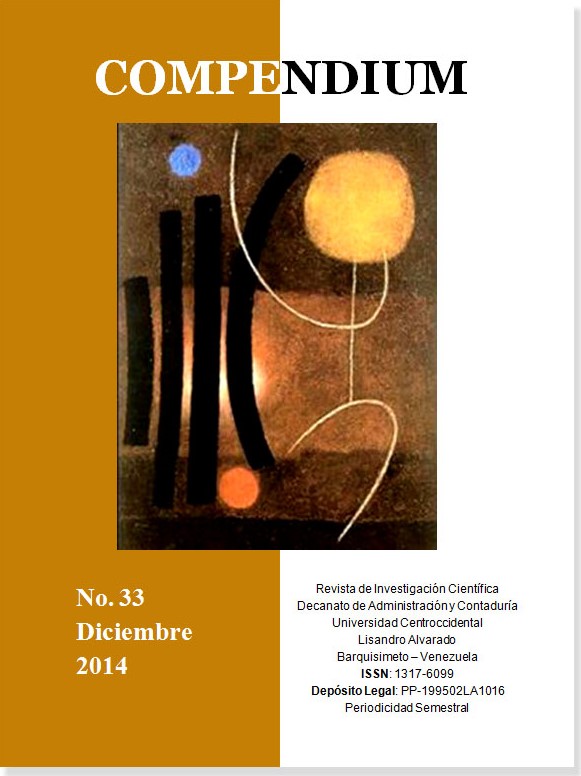EL The paradigm of complexity, its benefits to the reform of the University of San Carlos of Guatemala
Keywords:
complexity, university reform, Maya cultureAbstract
The paper aims to promote the discussion in the process of the university reform at the University of San Carlos of Guatemala, on the benefits and features of the paradigm of complexity and its relationship to the Maya culture as two bases to contextualizing the university education. For that, the scientifictechnical revolutions and the contemporary revolution of knowledge are presented as an international context, where complexity is a substantial part. This context is also characterized by the continuing economic, political, social and global environmental crisis, which contrasts with academic problems and factors impeding institutional development at the University of San Carlos of Guatemala. The positivist paradigm of science is strong, so that, a change of paradigm is suggested: the paradigm of complexity and its relationship to culture, into the process of university reform. The methodology applied for the preparation of this essay was based on the literature review in three ways: the first, it is related to the paradigm of complexity; the second, Guatemalan researchers work addressing the academic crisis of University of San Carlos and, the third, the proposals of the Maya movement for university reform. This is compared with the experience the author has as graduate professor and researcher in the Department of Economic and Social Research at the Western University Center. To close, as a final conclusion of this article, the current institutional crisis at the University of San Carlos is shown, as well as the need to take into account the multicultural context of the Guatemalan nation in the process of university reform and the possibility of success if the people interested in the university reform could articulate its transformation into a regional and national movement, all of that to meet the challenges of contemporary knowledge revolution as expressed in the arising of the paradigm of complexity.
Downloads
References
ASOCIACIÓN DE UNIVERSITARIOS CALICANTO (2013). Antecedentes de reforma universitaria en la USAC y problemas prioritarios relevantes de la universidad pública. Guatemala.
CAPRA, FRITJOP (1992). El punto crucial. Ciencia, sociedad y cultura naciente. Editorial Troquel. Argentina.
CAPRA, FRITJOP (1998). La trama de la vida. Una nueva perspectiva de los sistemas vivos. Anagrama. España.
ESPINOSA, ANA (2011). Estrategias metodológicas para operacionalizar la práctica educativa transdisciplinaria, en conjunto con los actores universitarios, en las licenciaturas del Centro de Estudios Universitarios Arkos (CEUArkos) de Puerto Vallarta, Jalisco, México. Revista Electrónica Educare. Vol. XV. No. 1. pp. 31-56. Fuente: www.redalyc. org/articulo.oa?id=194118804004 (Consultado el 03-10-2013).
FERRERO, JOSÉ (2013, noviembre 14). Rebajas universitarias. Diario El Quetzalteco. Sección Opiniones. p. 13. Fuente: issuu.com/elquetzalteco/docs/elquetzalteco2732 (Consultado el 15-11-2013)
GARCÍA, ROLANDO (2006). Sistemas complejos. Conceptos, método y fundamentación epistemológica de la investigación interdisciplinaria. Gedisa Editorial. España.
GARCÍA-RUÍZ, JESÚS (1995). La universidad. A las puertas del tercer milenio. Editorial Cholsamaj. Guatemala.
LEFF, ENRIQUE (2005). Complejidad, racionalidad ambiental y diálogo de saberes. Ponencia presentada en el I Congreso Internacional Interdisciplinar de Participación, Animación e Intervención Socioeducativa. Barcelona. España.
LEFF, ENRIQUE (2006). Aventuras de la Epistemología Ambiental: de la articulación de ciencias al diálogo de saberes. Siglo XXI Editores. México.
MALDONADO, CARLOS (1999). Esbozo de una filosofía de la lógica de la Complejidad. En: MALDONADO, CARLOS (1999). Visiones sobre la complejidad. 2ª Edición. Colección “Filosofía
y Ciencia” No. 1. Colombia. pp. 9-27.
MORÍN, EDGAR (1990). Introducción al pensamiento complejo. Ediciones ESF. Francia.
MORÍN, EDGAR (1999). Los siete saberes necesarios para la educación del futuro. UNESCO. Francia.
MORÍN, EDGAR (2010). El método III. El conocimiento del conocimiento. Ediciones Cátedra. España.
MORÍN, EDGAR; EMILIO ROGER y RAÚL MOTTA (2006). Educar en la era planetaria. Gedisa Editorial. España.
MULTIVERSIDAD MUNDO REAL EDGAR MORIN (2010). En ruta de las reformas fundamentales. Centro de Formación de Formadores en Latinoamérica. México.
NICOLESCU, BASARAB (1994). Manifiesto de la transdisciplinariedad. Convento da Arrábida. Portugal.
QUEMÉ, RIGOBERTO (2013). Educación superior estatal. Realidad y demandas de transformación desde los estudiantes, profesionales, docentes, líderes comunitarios y autoridades ancestrales indígenas. Maya Na’Oj. Guatemala.
SOTOLONGO, PEDRO y CARLOS DELGADO (2006). La revolución contemporánea del saber y la complejidad social. CLACSO. Argentina.
STIGLITZ, JOSEPH (2012). El precio de la desigualdad. Taurus. España.
TIU, ROMEO (2013). Análisis jurídico y una propuesta de reforma a la ley orgánica de la USAC desde los derechos de los pueblos y mujeres indígenas. Maya Na’Oj. Guatemala.




